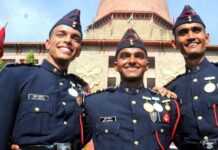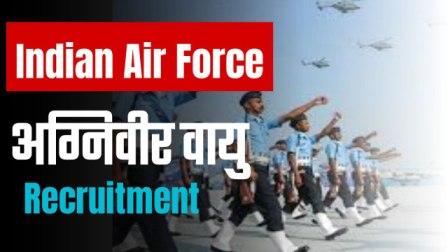Territorial Army 2021 is being conducted on 26th, September 2021. Many candidates are appearing for the TA 2021. The exam is being conducted offline in two different shifts i.e. Shift 1 paper includes Reasoning and Mathematics and Shift 2 paper includes English and General Awareness. Candidates in Shift 1 will be facing the exam from 10:00 AM – 12:00 PM and Shift 2 starts from 01:00 PM – 03:00 PM.
Territorial Army Paper -1 Cut Off Marks
- Paper 1 – Reasoning and Maths – 50% marks
- Reasoning – 40% marks
- Mathematics – 40% marks
Territorial Army Paper -2 Cut Off Marks
- Paper 2 – GK and English – 50% marks
- GK – 40% marks
- English – 40% marks
These are the minimum the candidate must score to become eligible to pass the exam, though there is no confirmation if everyone who clears this section cut off will be called for PIB interview or there will be the final cut off marks apart from the sectional cut off. The final Territorial army cut off marks will be published on the official website along with with the territorial army 2021 results.
SYLLABUS :
Paper – I. Reasoning and Elementary Mathematics.
(a) Part – 1. Reasoning. Verbal Ability and Non-Ability, The question paper will be designed to test the candidates ability to complete sequences making logical conclusions based on the simple pattern of numbers, statements, figures, letters, etc as may be expected of a rational thinking person without any special study of the subject.
(b) Part – 2. Elementary Mathematics.
(i) Arithmetic. Number System – natural numbers, integers, rational and real numbers. Fundamental operations – addition, subtraction, multiplication, division, square roots, decimal fraction.
(ii) Unitary Method. Time and distance, time and work, percentages, application to simple and compound interest, profit and loss, ratio and proportion, variation.
(iii) Elementary Number Theory. Division algorithm, prime and composite numbers. Tests of divisibility by 2, 3, 4, 5, 9 & 11. Multiples and factors, factorization theorem, HCF, and LCM. Euclidean algorithm, logarithms to base 10, laws of logarithms, use of logarithmic tables.
(iv) Algebra. Basic operations, simple factors, remainder theorem, HCF, LCM, theory of polynomials, solutions of quadratic equations, relation between its roots and coefficients (only real roots to be considered). Simultaneous linear equations in two unknowns-analytical and graphical solutions. Simultaneous linear equations in two variables and their solutions. Practical problems leading to two simultaneous liner equations or in equations in two variables or quadratic equations in one variable and their solutions. Set language and set notation, rational expressions and conditional identities, laws of indices.
(v) Trigonometry. Sine x, cosine x, tangent x when O° < x < 90°. Values of sine x, cos x and ten x, for x = 0°, 30°, 45°, 60° & 90°. Simple trigonometric identities. Use of trigonometric tables. Simple cases of heights and distances.
(vi) Geometry. Lines and angles, plane and plane figures theorems on
- Properties of angles at a point.
- Parallel lines.
- Sides and angles of a triangle.
- Congruency of triangles.
- Similar triangles.
- Concurrence of medians and altitudes.
- Properties of angles, sides, and diagonals of a parallelogram, rectangle and square.
- Circle and its properties, including tangents and normal.
- Loci.
(vii) Mensuration. Areas of squares, rectangles, parallelograms, triangles, and circles. Areas of figures which can bisect into the figures (field book). Surface area and volume of cuboids, lateral surface, and volume of a right circular area of cylinders. Surface area and volume of spheres.
(viii) Statistics. Collection and tabulation of statistical data, graphical representation-frequency polygons, bar charts, pie charts, etc. Measures of central tendency.
Paper-II. General Knowledge and English.
(a) Part – 1. General Knowledge. General knowledge including knowledge of current events and such matters of everyday observation and experience in scientific aspects as may be expected of an educated person who has not made a special study of any scientific subject. The paper will also include questions on the history of India and the geography of nature which candidates should be able to answer without special study.
(b) Part – 2. English. The question paper will be designed to test the candidates’ understanding of English and workman-like use of words. Questions in English are from synonyms, antonyms, reading comprehension, Para jumbles, error spotting, jumbled sentences, sentence correction, and fill-in blanks.
Candidates to ensure their eligibility for the examination: The candidates applying for the examination should ensure that they fulfill all eligibility conditions for admission to the Examination. Their admission at all the stages of the examination will be purely provisional subject to satisfying the prescribed eligibility conditions. Mere issue of Admission Certificate to the candidate will not imply that his candidature has been finally cleared by the competent authority.
Time: Maximum time for each paper is 02 hrs and will be conducted in two sessions.
Type of Exam: Objective (OMR Answer Sheet will be used).
Qualifying Marks: Minimum 40% marks in each part of the paper separately and an overall average of 50%.










